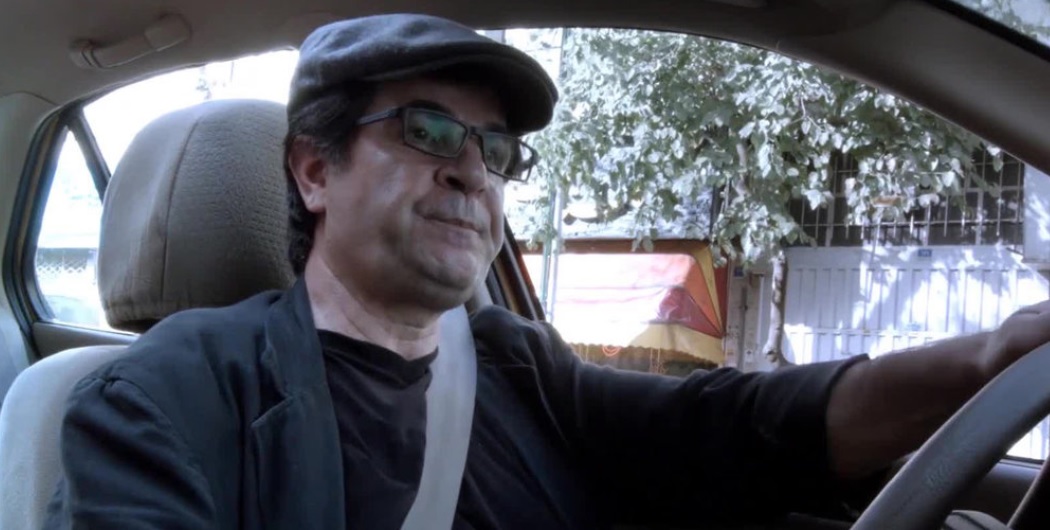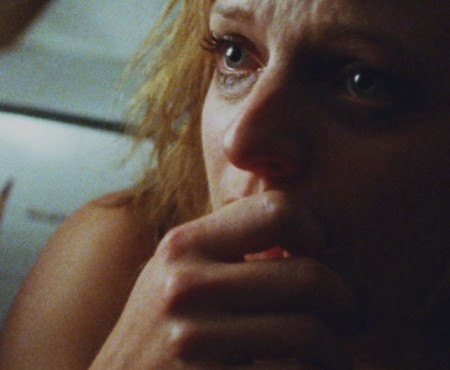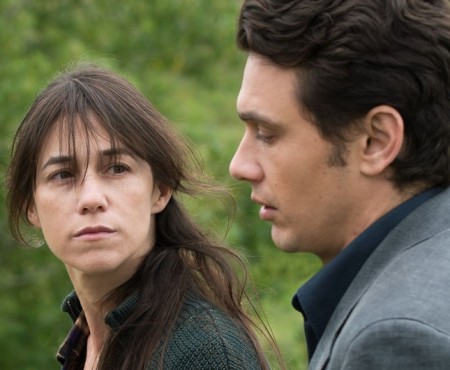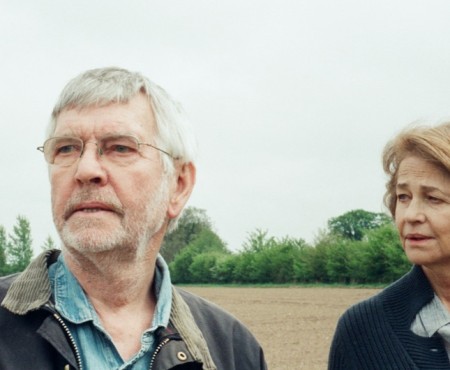An unsurprising winner of the Berlinale’s Golden Bear, Jafar Panahi’s Taxi is a road movie come-societal commentary of the type that seems to now be a fixture in Iranian cinema. Following on from Abbas Kiarostami’s Taste of Cherry (1997) and Ten (2002), Panahi employs a fixed camera on the dashboard of his very own cab, driving around Tehran picking up an assortment of idiosyncratic locals, each of whom can lay claim to representing a different strain of Iranian society. A triumph for art creation in the face of Iran’s much publicised ban on Panahi’s work, it’s an elegantly coded, surprisingly sprightly work, made in the face of adversity.
Like Panahi’s Closed Curtain (2013) and This is Not a Film (2011), Taxi is clearly a dextrous sidestepping of the state’s ban on his making films. But rather than filming in secret at home, this time Panahi takes to the road, filming entirely within a vehicle in order to avoid government detection. Along the way he’s joined by characters that run the gauntlet from political commentary to outright comedy. One scene sees two characters argue about whether Sharia law should necessitate brutal punishment of criminals, a tense encounter leavened by one hilarious sequence in which a female passenger holds an open fishbowl on her lap for the duration of her journey.
It’s this contrast of light and shade – of the jovial and the grim – that allows Panahi to create what can easily be seen as a plea for the vibrancy of his country. Here, people are motivated by the issues that are often debated in Western media, but also pass through life with a warmth, normality and inconsequence that many would deny acknowledgement. When one passenger drags her bloodied husband into the car in order to transport him to hospital, he begins recording his will onto a fellow passenger’s phone, laying bare various family schisms in what is both a reflection on Iranian law, and a grimly funny portrayal of human bitterness.
If those segments make Taxi by turns challenging, rich and ineffably warm, Panahi also takes the opportunity to directly address his own situation. Various characters playfully make reference to the possibility of being actors working to a script, whilst a film student expresses the frustrations they suffer given the state’s restriction on what can and cannot be said by filmmakers working within their borders. The best moment of all, though, comes when the man recording the injured man’s will turns out to be an illegal DVD salesman, promising to get Panahi a copy of Nuri Bilge Ceylan’s Once Upon a Time in Anatolia. A wry nod to the way that many films, not least his own, are seen in Iran, it’s a point of grave concern, as well as vibrant humour; the apotheosis of another hallmark film in the career of a great filmmaker, and a resolute symbol of defiance.




















